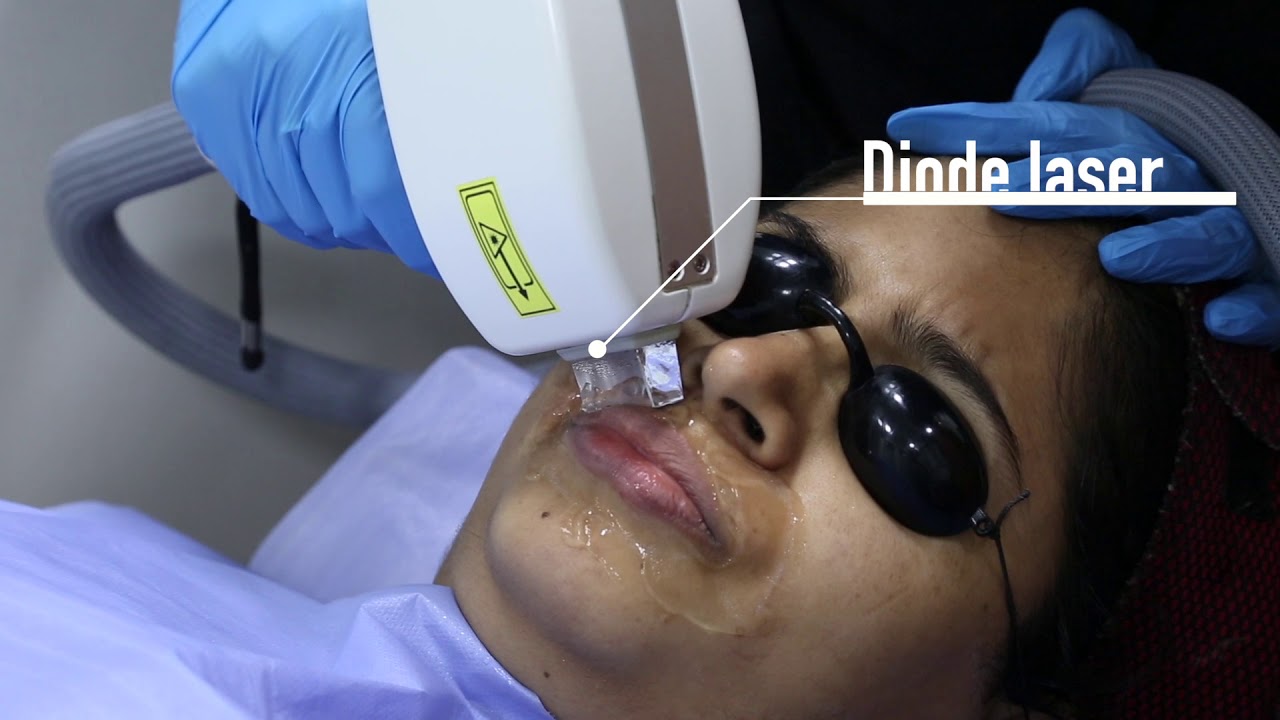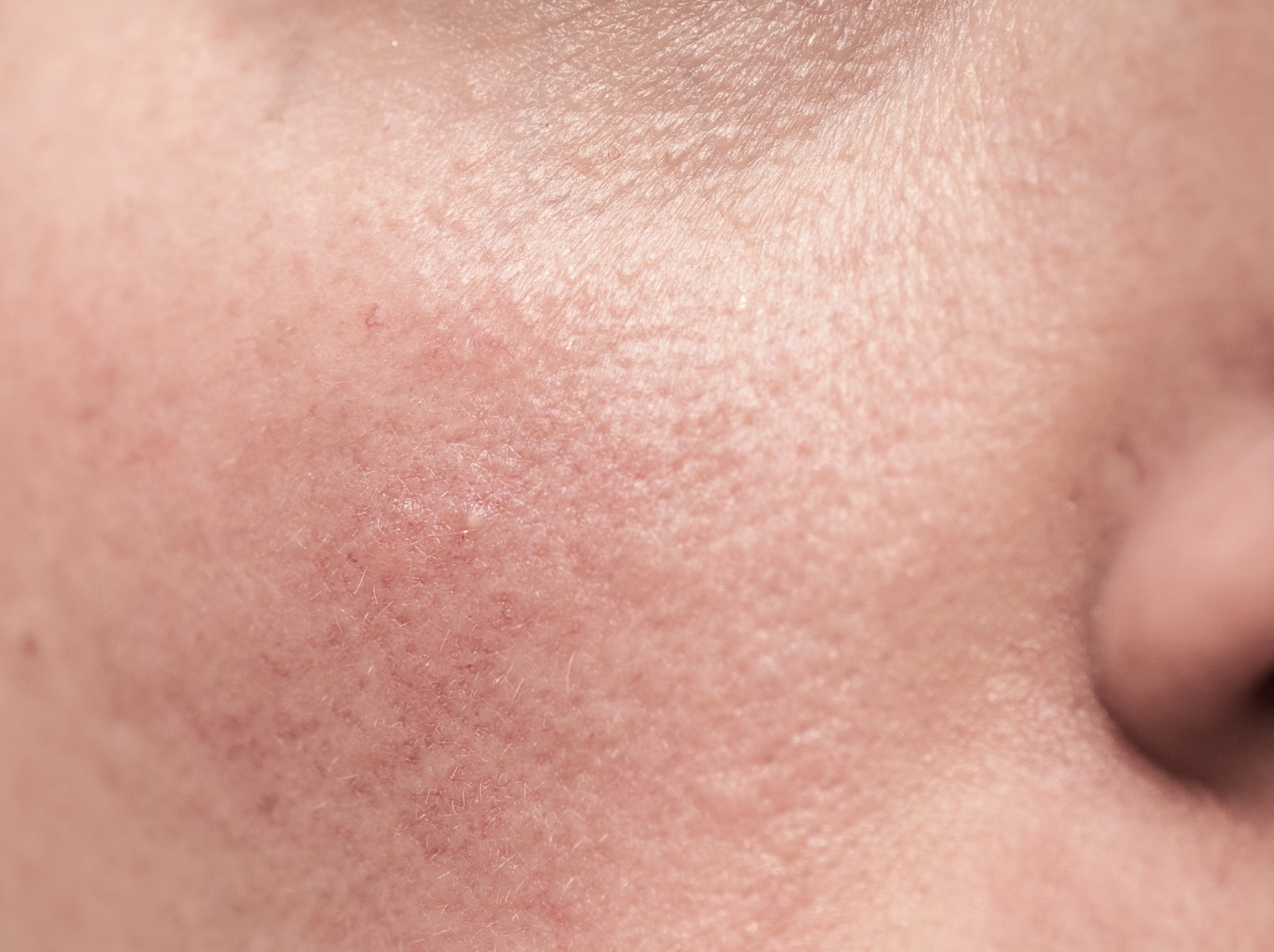Home>FAQs>What Type Of Hair Responds Best To Laser Hair Removal Treatments?


FAQs
What Type Of Hair Responds Best To Laser Hair Removal Treatments?
Modified: September 23, 2023
Learn which hair types are most suitable for laser hair removal treatments and get answers to your general questions about this effective hair removal method.
(Many of the links in this article redirect to a specific reviewed product. Your purchase of these products through affiliate links helps to generate commission for Under-tec.com, at no extra cost. Learn more)
Table of Contents
Introduction
Laser hair removal is a popular cosmetic procedure that offers a long-term solution to unwanted hair growth. It uses a concentrated beam of light to target and destroy hair follicles, preventing regrowth in the treated area. This method has gained popularity in recent years due to its effectiveness and convenience compared to traditional hair removal methods such as shaving or waxing.
In this article, we will explore which type of hair responds best to laser hair removal treatments. While laser hair removal can be effective for a wide range of individuals, certain factors can impact its success. Understanding these factors can help determine if you are an ideal candidate for this procedure.
Before we dive into the specifics, let’s briefly discuss how laser hair removal works. During the treatment, the laser light is absorbed by the pigment present in the hair follicles. This absorption leads to the destruction of the follicle, inhibiting further hair growth. Because of this principle, there are certain characteristics of hair and skin that can affect the outcome of laser hair removal treatments.
In the following sections, we will explore the key factors that influence the efficacy of laser hair removal: hair color, hair thickness, and skin tone. By understanding how these factors interact with the laser, you’ll be able to determine if laser hair removal is the right choice for you.
Understanding Laser Hair Removal
Laser hair removal is a cosmetic procedure that involves using a laser device to target and destroy hair follicles. The treatment is carried out by a trained professional and can be performed on various parts of the body, including the face, arms, legs, underarms, and bikini area.
The laser emits a concentrated beam of light that is absorbed by the pigment in the hair follicles. This absorption generates heat, which damages the follicles and inhibits further hair growth. Over multiple sessions, the treated hair follicles become weaker and less likely to produce new hair.
One of the key advantages of laser hair removal is its ability to provide long-lasting results. Unlike temporary hair removal methods like shaving or waxing, laser hair removal offers a more permanent solution. However, it is important to note that the results can vary depending on individual factors such as hair color, thickness, and skin tone.
The procedure itself is relatively quick and straightforward. Before the treatment begins, the area to be treated is cleaned, and a cooling gel may be applied to minimize any discomfort. The laser is then calibrated to match the individual’s specific hair color and skin type. The laser is moved over the treatment area, emitting pulses of light that target the hair follicles. Most people describe the sensation as a mild tingling or snapping feeling.
It’s worth noting that laser hair removal is not a one-time procedure. Multiple sessions are typically required to achieve the desired results. This is because hair grows in cycles, and the laser can only target follicles in the active growth phase. By undergoing several sessions spaced a few weeks apart, it ensures that all hair follicles are effectively treated.
Overall, laser hair removal offers a long-lasting and convenient solution for unwanted hair growth. It is important to consult with a qualified professional to determine if you are a suitable candidate for the treatment and to create a personalized treatment plan.
Factors Affecting Laser Hair Removal
While laser hair removal can be effective for many individuals, there are several factors that can affect the success of the treatment. Understanding these factors can help determine if laser hair removal is the right option for you.
1. Hair Color: Laser hair removal works best on individuals with dark hair and light skin. The laser targets the pigment in the hair follicles, so darker hair absorbs more light, leading to better results. Lighter hair colors, such as gray, blonde, or red, may not respond as well to laser treatment.
2. Hair Thickness: Coarser, thicker hair tends to respond better to laser hair removal compared to finer hair. Thicker hair absorbs more light energy, allowing for better destruction of the hair follicle. However, even individuals with fine hair can still benefit from laser hair removal, although they may require additional sessions for optimal results.
3. Skin Tone: Laser hair removal works best on individuals with light to medium skin tones. This is because darker skin contains more melanin, which can absorb the laser energy intended for the hair follicles. Using the appropriate laser technology designed for different skin types, professionals can safely perform laser hair removal on darker skin tones as well.
4. Hair Cycle: Laser hair removal is most effective on actively growing hair. Hair follicles go through different stages: the growing phase (anagen), the rest phase (telogen), and the shedding phase (catagen). The laser can only target follicles in the active growth phase, so multiple sessions spaced several weeks apart are necessary to treat all hair follicles at different stages.
5. Hormonal Factors: Hormonal imbalances, such as those caused by conditions like polycystic ovary syndrome (PCOS), can affect the success of laser hair removal. Hormonal changes can lead to increased hair growth and may require additional sessions to maintain long-term results.
It is important to consult with a qualified professional to assess your individual characteristics and determine if laser hair removal is suitable for you. They can evaluate your hair color, thickness, skin tone, and any underlying hormonal factors to create a personalized treatment plan that maximizes the effectiveness of the procedure.
Remember, every individual is unique, and results may vary. It is crucial to have realistic expectations and follow the recommended treatment schedule to achieve the desired outcome.
Hair Color
Hair color plays a significant role in the effectiveness of laser hair removal treatments. The laser targets the pigment, known as melanin, present in the hair follicles. Darker hair colors contain more melanin, making them more responsive to laser treatment.
Individuals with dark hair, such as black or brown, typically experience better results with laser hair removal. The laser energy is absorbed by the melanin in the hair follicles, generating heat that damages the follicle and inhibits further hair growth. This process is less effective on lighter hair colors, such as blonde, red, or gray, as there is less melanin to absorb the laser energy.
However, advancements in laser technology have made it possible to treat individuals with lighter hair colors. Some lasers, like the Alexandrite or Diode lasers, have adjustable settings that can be optimized for different hair colors. These lasers can target lighter hair colors more effectively, although additional sessions may be required to achieve desired results.
It is important to note that laser hair removal is most effective when there is a significant contrast between the hair color and the skin tone. Dark hair against light skin provides the ideal contrast, allowing the laser to target the hair follicles with precision and minimize the risk of damaging the surrounding skin.
On the other hand, individuals with darker skin tones may face challenges with laser hair removal due to the higher amount of melanin present in their skin. The laser energy intended for the hair follicles can be absorbed by the surrounding skin, increasing the risk of burns or hyperpigmentation. However, there are lasers specifically designed for darker skin tones, such as the Nd:YAG laser, which can safely and effectively treat unwanted hair.
Consulting with a professional before undergoing laser hair removal is essential to determine how well your hair color will respond to the treatment. They can evaluate your hair color and skin tone and recommend the most suitable laser technology for optimal results.
Laser hair removal offers a long-term solution to unwanted hair growth, and advancements in technology have made it possible to treat a broader range of hair colors. Understanding the impact of hair color on the effectiveness of laser hair removal can help manage expectations and ensure the best possible outcome.
Hair Thickness
The thickness of the hair also plays a significant role in determining the success of laser hair removal treatments. Laser devices target the pigment present in the hair follicles to heat and destroy them. Thicker hair tends to have more pigment, making it more receptive to the laser energy and resulting in better treatment outcomes.
Individuals with coarse or thick hair often have more successful results with laser hair removal. The laser energy is easily absorbed by the darker, thicker hairs, delivering more heat to the hair follicles and effectively inhibiting future hair growth.
On the other hand, individuals with finer or thinner hair may require more treatments to achieve desired results. The thinner hair strands have less pigment and are more resistant to the laser energy. Multiple sessions at specific intervals are necessary to ensure that all hair follicles are treated during their active growth phase.
It is important to note that while laser hair removal may be less effective on finer hair, it can still provide satisfactory results. The laser can still target and damage the hair follicles, resulting in hair reduction. However, it may require additional sessions to achieve the desired level of hair removal.
It’s worth mentioning that the effectiveness of laser hair removal may also vary depending on the combination of hair color and thickness. For example, individuals with thick, dark hair tend to respond best to laser treatment. Conversely, individuals with thin, light-colored hair may experience less dramatic results.
Consulting with a professional before undergoing laser hair removal is crucial to determine how your specific hair thickness will respond to treatment. They can assess the density and texture of your hair and tailor the treatment plan accordingly.
While hair thickness can impact the success of laser hair removal, advancements in laser technology have made it possible to treat a wide range of hair types. Whether you have thick or thin hair, laser hair removal can still provide long-lasting and effective hair reduction, helping you achieve smoother, hair-free skin.
Skin Tone
The skin tone is an important factor to consider when it comes to laser hair removal. The laser targets the pigment in the hair follicles, and higher levels of melanin in the skin can affect the effectiveness and safety of the treatment.
Laser hair removal works best on individuals with light to medium skin tones. This is because darker skin contains more melanin, which can compete with the hair follicles for the laser energy. The laser may end up being absorbed by the surrounding skin, increasing the risk of burns or changes in pigmentation.
However, advancements in laser technology have made it possible to perform laser hair removal on darker skin tones as well. In these cases, specific lasers like the Nd:YAG laser, which has a longer wavelength, are utilized. This laser is less likely to be absorbed by the skin and can more effectively target the hair follicles without causing damage.
It is important to note that individuals with very dark skin may still have limitations in terms of how well the laser can selectively target the hair follicles. In such cases, additional precautions and a customized treatment plan may be required to ensure both safety and efficiency.
For individuals with lighter skin tones, laser hair removal can be highly effective. The contrast between the hair color and the skin allows the laser to precisely target the melanin in the hair follicles. This results in better treatment outcomes with reduced risk of complications.
Consulting with a qualified professional is crucial to determine how your specific skin tone will respond to laser hair removal. They can assess your skin type and recommend the most suitable laser technology for your treatment. They will also consider your unique characteristics, such as the density and thickness of your hair, to develop a personalized treatment plan.
Laser hair removal offers a long-term solution to unwanted hair growth for individuals with various skin tones. By considering your skin tone during the planning process, you can maximize the effectiveness of the treatment and achieve smoother, hair-free skin.
Ideal Candidates for Laser Hair Removal
Laser hair removal can be an effective solution for many individuals seeking long-term hair reduction. While the treatment is suitable for a wide range of people, there are some factors that determine who the ideal candidates are.
1. Hair Color and Skin Tone: The ideal candidate for laser hair removal has darker hair and lighter skin. This is because the laser targets the pigment in the hair follicles, and the contrast between the hair color and skin tone allows for effective treatment. However, advancements in lasers have made it possible to treat a broader range of hair colors and skin tones.
2. Hair Thickness: Candidates with thicker, coarser hair tend to have better results with laser hair removal. Thicker hair absorbs more laser energy, leading to better destruction of the hair follicles. However, even individuals with finer hair can benefit from laser treatment, although it may require additional sessions.
3. General Health: Candidates should be in good overall health without any underlying medical conditions that could impact the healing process. It is important to disclose any medical history and medications to the laser hair removal professional to ensure the safety and effectiveness of the treatment.
4. Growth Cycle: Laser hair removal is most effective on hair follicles in the active growth phase. Since hair grows in cycles, multiple sessions spaced several weeks apart are necessary to target all hair follicles effectively. Ideal candidates are committed to attending multiple sessions to achieve their desired results.
5. Realistic Expectations: It is important for candidates to have realistic expectations about the outcome of laser hair removal. While the procedure can significantly reduce hair growth, it may not lead to complete hair removal. Candidates should understand that some hair may still regrow, although in finer and sparser form.
It is crucial to consult with a qualified and experienced professional before undergoing laser hair removal. They will assess your specific hair and skin characteristics and advise on the most suitable treatment plan for you. They can also provide information about the number of sessions required and the expected results based on your individual case.
In summary, ideal candidates for laser hair removal have darker hair and lighter skin, thicker hair, and a good overall health status. They understand the need for multiple sessions and have realistic expectations about the outcome. By ensuring that you meet these criteria, you can maximize the effectiveness of the treatment and enjoy the benefits of long-term hair reduction.
Conclusion
Laser hair removal is an effective and convenient method for long-term hair reduction. Understanding the factors that affect its success, such as hair color, hair thickness, skin tone, and other individual characteristics, can help determine if laser hair removal is the right choice for you.
Hair color and skin tone play significant roles in the effectiveness of laser hair removal. Darker hair colors and lighter skin tones tend to respond better to treatment, but advancements in laser technology have made it possible to treat a broader range of hair colors and skin tones.
Hair thickness also influences the outcome of laser hair removal. Thicker, coarser hair tends to have better results, while finer hair may require additional sessions for optimal hair reduction.
Moreover, considering the growth cycle of hair and committing to multiple treatment sessions is crucial for achieving the desired results. It also requires candidates to have realistic expectations about the degree of hair reduction.
Consulting with a professional is essential before undergoing laser hair removal. They will assess your individual characteristics and develop a personalized treatment plan to maximize effectiveness and safety.
With advancements in technology and the expertise of professionals, laser hair removal continues to be a popular choice for individuals seeking a long-term solution to unwanted hair growth. By understanding the factors that influence its success, you can make an informed decision about whether laser hair removal is right for you.
Remember, every individual is unique, and the effectiveness of laser hair removal may vary. By consulting with a qualified professional and discussing your specific needs and goals, you can determine if laser hair removal is a suitable option for you. With the right combination of factors, laser hair removal can provide you with smoother, hair-free skin and a boost in your self-confidence.









